Summer Solstice Screentime
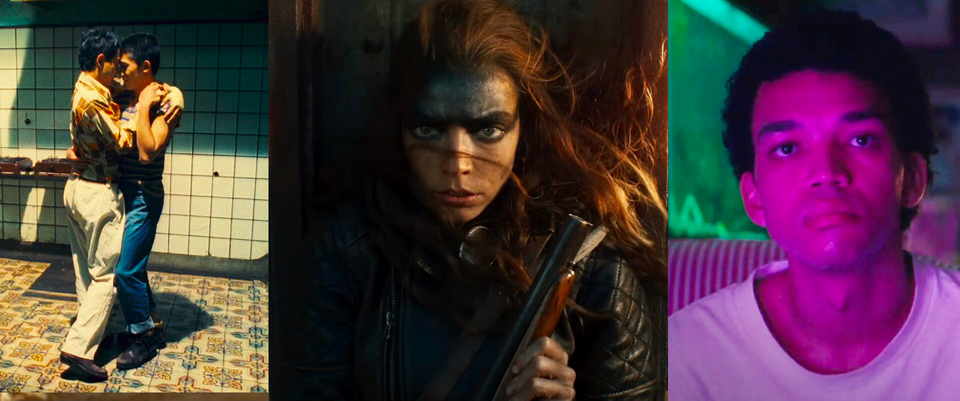
All Couples Are Happy in Their Own Way
Happy Together
(1997, Wong Kar-wai)
We know what we want, we have an idea of it and we know how to get it, and so we convince ourselves that if we do ABC we'll get XYZ, but life, life sees our ABC and raises us some unholy acronyms in fucking Wingdings, and sometimes these are obstacles to the thing we want, and sometimes they become the thing we want, and sometimes they're both, but in any case sometimes you just want to take a trip with your hot mess of a boyfriend and life ends up taking you on some massive goddamn detours and the bitch leaves you stranded in Argentina only to come back when he's in the shit, so now what?
Life is messy, love is messy, Happy Together is messy. It's gorgeous, sure, no fleabag apartment ever looked so inviting, Tony Leung lighting Leslie Cheung's cigarette with his own is just radiating hotness, but the movie goes by its own internal rhythm and thank god for that. Who needs a Well-Written Screenplay with laboriously telegraphed twists when you can capture a million little slices of life and assemble them in a vibrant kaleidoscope, surprising and engaging by how they refract off each other? That's what life is, whether it's lived alone or with another or briefly crossing paths with a third Hong Kong expat still (Chen Chang). That Lai Yiu-Fai (Leung) and Ho Po-Wing (Cheung) are fundamentally incompatible and drive each other nuts also gives their relationship the juice, the spice that makes their moments of love and tenderness so good. While "let's start over" is functionally a promise to make the same mistakes again, it ever holds the potential for things to work out right this time.
Sometimes life works out like that. But sometimes it doesn't. You don't get what you want, so now what? Or, you do get what you want, you get back to where you were going, but it's been so long, and things are so different, is it still what you wanted? Is it all you imagined? Where do you find your happiness then? You don't have what you don't have, but you do what you do, and Lai, and Happy Together, have found enough else along the way to hold onto the memory and keep moving forward.
And Anya Will Strike Down Upon Thee With Great Vengeance and Furious Anger
Furiosa: A Mad Max Saga
(2024, dir. George Miller)
I once joked that Three Thousand Years of Longing is the first movie with an above-the-line credited dramaturg, and while Furiosa technically isn't the second—Nico Lathouris is credited as such deep in the scroll—it's got the literary flourishes that marked that film, which Miller had been wanting to make for decades but whose timing made it feel like a pallet cleanser after the massive logistics and viscerally of Fury Road. Whether one thinks that Miller is splitting the difference with prequel Furiosa probably comes down to one's tolerance for soliloquy in a movie that features a chariot made of motorcycles. Me?
O that this too too solid film would melt,
Thaw, and then hook it to my goddamn veins.
Okay, so it's not the revelatory adrenaline rush that Fury Road was. It's a movie made by a director with nothing to prove, revisiting seemingly familiar material from a different angle and in a different register. Instead of a single extended and escalating escape chase, we have a years-spanning story of young Furiosa (Anya Taylor-Joy), taken from her bountiful hideaway and falling in with the nasty crew led by Immortan Joe (Lachy Hulme) in order to escape captor and biker gang leader Dr. Dementus (Chris Hemsworth) and exact her revenge. The subtitle promises a saga, in the fashion of the Icelandic tales of viking heroes playing the long game of vengeance, and that's what it delivered, right down to excited talk of Valhalla.
It's the hammy theatricality of Hemsworth's Dementus that gives this outing its savory flavor. Rather than the raging id of toxic masculinity, the bad Doctor is a paragon of amused nihilism, making a spectacle of the post-apocalyptic society. Hemsworth gets the bulk of meaty speeches—I'd wager Dementus has three times as many lines as Furiosa—which, as rhetoric, can't help but shape what we take away from the movie. Opposite him Anya Taylor-Joy gives an impressively feral performance; two years ago she was the love interest in The Northman, and now she simply is the northman, an avatar of smoldering rage. She maintains the intensity of Fury Road across Furiosa's several capital-A Acts, with chapter titles like "Lessons From the Wasteland" and "Beyond Vengeance," that break the story up across several years.
God knows we have enough origin stories for characters that didn't need them, but Furiosa justifies itself by using the emotional arc of its revenge epic narrative to do more than just play connect-the-plots. Rather than just telling us how freedom fighter Furiosa ended up in the service of a scuzzlord like Immortam Joe, it shows why someone would ever put up a fight in the last place on Earth. Crucial to this is Tom Burke, whose Praetorian Jack in very little time establishes himself as the voice of decency in an indecent world. I would gladly have taken a longer film with another act given over to developing the two characters' mutual protectiveness, but as it is Taylor-Joy and Burke do a ton to sell how important Jack is to Furiosa and by extension how important cooperation is in doomtimes. Their desperate embraces tell us everything of how far they've come in the space between chapters.
Which is, again, very theatrical, very literary, but appropriate for the scope of the film: epic in the classical mold, with a personal view of a wide-ranging tale. This is no more true than in the climax, which eschews another extravagent car chase for a dialogue set against an apocalyptically dusted desert. It's counterintuitive to a Mad Max-adjacent movie, but it's able to deepen the instantly-iconic Furiosa in a way the lean dialogue of Fury Road could not. It's not subtle in declaiming its ideas, but these are not subtle movies. The big speeches and five-act structure are just one more kind of maximalism. Despite the thinking of the suits who shamefully pushed this onto VOD barely a month after it came out, one can indeed spell 'maximalism' without Mad Max.
When You Gaze Into the TV, the TV Also Gazes Into You
I Saw the TV Glow
(2024, dir. Jane Schoenbrun)
Let us eulogize the VHS tape. Stubbornly analog, the clickety plastic shells had no shortage of shortcomings, but there was something truly unique about what it was doing. Not capturing a live action but a live broadcast, the action on the television screen. VHS recordings captured not just a show but all the geographically and temporally specific commercials and news as well, all in a linear broadcast order. The reproduction was far from perfect, but that only further served to make them like memories of media, home movies for those for whom the movies were home, memories that molder now in landfills.
Such thoughts come easily while watching I Saw the TV Glow. It is a movie about media and memories, and the only way it could be a more perfect version of that would be if it were made-for-TV, from the time before movies became made for TV and TV became made for movies.
There is a narrative, though it's kind of my least favorite part of the movie. In 1996 awkward seventh grader Owen (Justice Smith) becomes fixated on young adult supernatural TV show The Pink Opaque, about two girls who meet once at a summer camp and form a psychic connection to fight monsters-of-the-week, which he watches with the help of fellow misfit but not quite friend ninth grader Maddy (Brigette Lundy-Paine). Not all is well in either of their lives, and the show acts as an escape. In time it takes on a vastly larger significance, not least when Maddy disappears and The Pink Opaque is canceled.
The movie operates in a kind of pop cultural fugue state, and I mean that in the best way. The image is warm and fuzzy like a hazy remembrance of pre-digital filmmaking, but frequently employing strange camera angles that highlight the artifice—not of the film itself, more on that shortly, but of the environment, e.g. a bunch of giant fruit decorating a grocery store produce section. The lighting also emphasizes the artificial and utilizes so many unnatural sources, in soft shades of primary and secondary colors, that natural light during the handful of daytime outdoor shots feels strange and unnatural. The movie isn't only about vibes, but they are impeccable and the primary vehicle for its central idea of pop culture as narcotic.
The movie's world is saturated in pastiche and ephemera. The Pink Opaque is aired on the Young Adult Network, which has the look of vintage (vintage!) Nickelodeon and likewise shows black-and-white reruns late at night. The Pink Opaque itself looks like something closer to the teen programming of the WB, in the vein of Buffy the Vampire Slayer, albeit with a monster whose design is gleefully taken straight from the The Adventures of Pete and Pete, whose suburban surrealism may be I Saw the TV Glow's biggest spiritual godfather. The world itself is populated by period signifiers. An early scene taking place at Void High School is lit by the glow of a Fruitopia vending machine, and a flash-forward sequence includes footage of a certain giant robots movie, though not the one you think. The cast is rounded out with cameos from a roster of 90s cultural revenants playing echoes of their old characters and personas; they are better left unspoiled, as learning of them is one of the movie's delights and adds another layer to the movie's uncanny reality.
The mood isn't quite able to follow the story's eventual pivot to horror, though it certainly tries. There are some fantastically gross practical effects throughout, in unexpected places and done with enough care that each sequence gets its own section of the end credits. Writer-director Jane Schoenbrun pushes the nightmare imagery and breaks form with static and snow and uncomfortable long takes, especially within The Pink Opaque TV footage. There's a lot of David Lynch here, with ideas taken straight from Twin Peaks: The Return, albeit put to different ends (including an unmissable trans-bisexual subtext). Yet I never fully felt the dysphoric terror the movie is going for, simply because it still felt of a piece with the dreamscape that came before. The parallels between Owen's world and The Pink Opaque are given a take-it-or-leave it explanation that keeps the story well within the realm of the explicable, and the horror never feels like it's violating the film's unreality. It is as stylized as everything else, and especially because so much else is homage and pastiche, it can't help but feel like it's at a distance, in quotes.
But then that's sort of the point. As the movie entered its middle-end I started to kind of hate it, wondering if its media obsession was just so much nostalgic Millennial navel-gazing, appealing to a generation to whom corporations had never stopped re-selling their childhood, whose Pilgrim's progress had stalled into a Transformers midlife crisis and now had curdled into the despairing realization that prosperity was tenuous and illusory anyway, that we had been eating baby food all along and even worse we liked it but at least it was something, and rising up inside me was the most visceral horror and disgust of all—of recognition. For did I not see all the references? Am I not now the Captain America meme? Do I not understand the "I understood that reference" reference?
I cannot judge I Saw the TV Glow for being unable to fully escape its Plato's man-cave of postmodern shadow plays to offer the shock of the new, for its diagnosis is all too accurate. As Owen is trapped between fantasy and convention, so am I. There's no escaping escapism. If you turn off the TV, you are still left with the reflection.
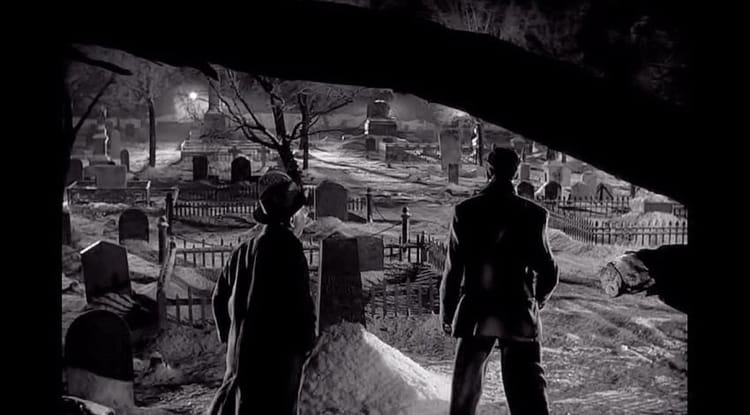
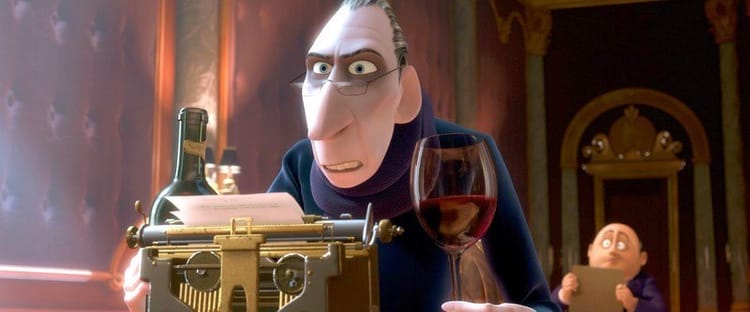
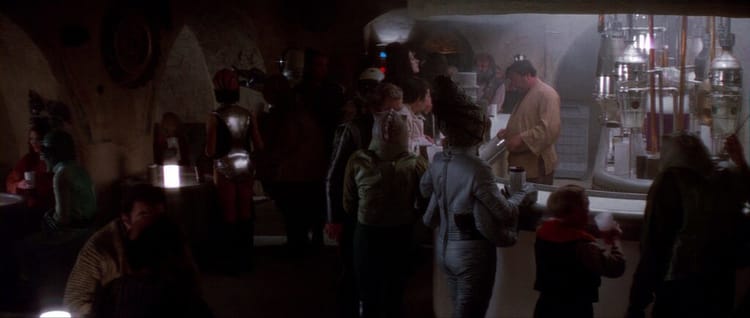
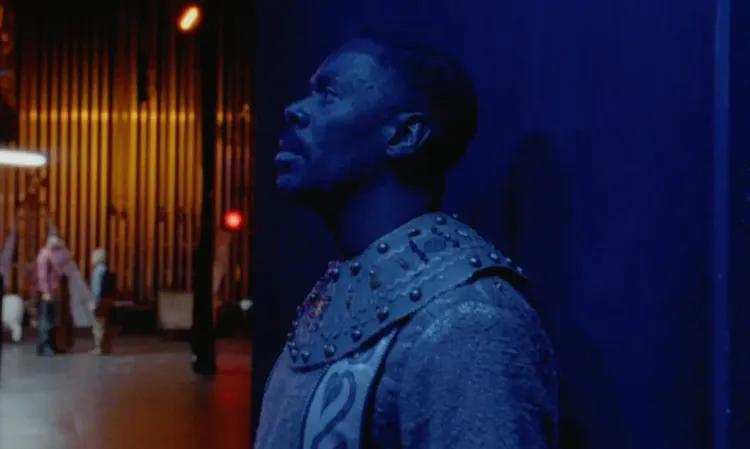
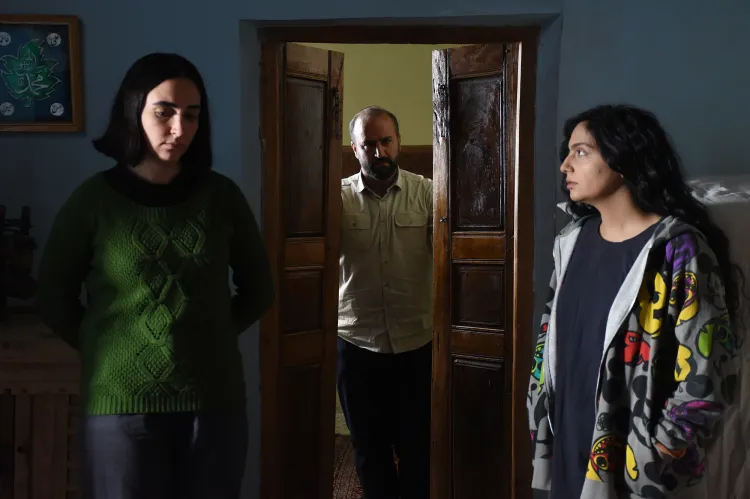
Member discussion